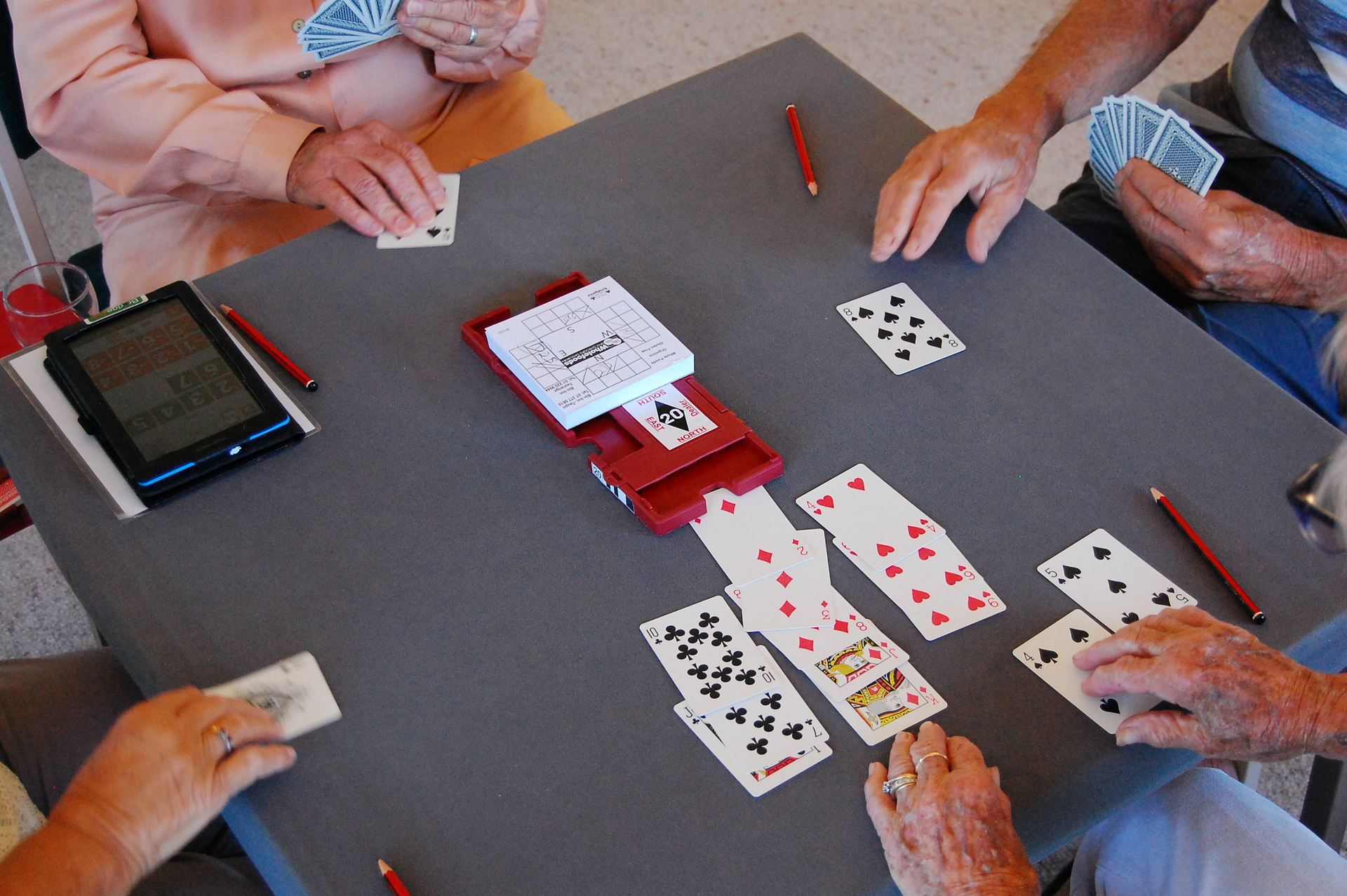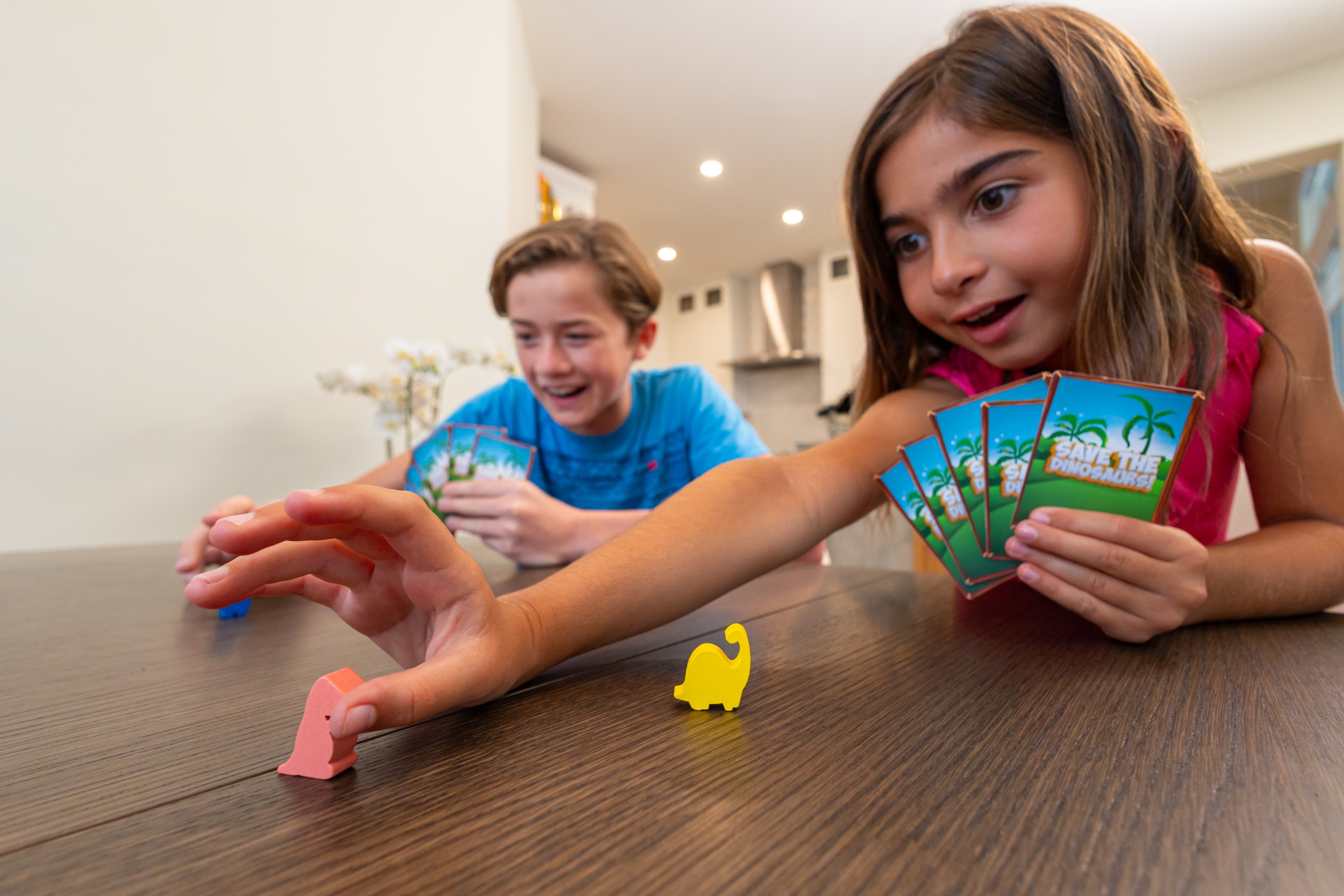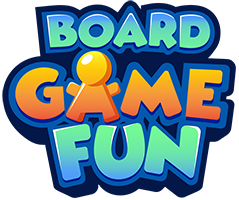You’re Probably Using these Card Games Wrong: The Ultimate Guide to Playing Card Games
Key Takeaways
-
What are some essential strategies for popular card games like Canasta, Poker, Bridge, and Rummy?
-
Why should someone be encouraged to start playing and exploring different card games?
-
Why is etiquette and sportsmanship important in card games, and what does it entail?
Card games have captivated players for centuries, transcending cultures and generations. Whether it's a classic game night with friends, a two-player game, or a competitive tournament, these games bring people together, challenge the mind, and offer endless entertainment.

In this ultimate guide to playing card games, we will explore the rich variety of games available, breaking down the different types and their unique appeals.
Whether you’re a seasoned player or a curious beginner, this guide for the best card games will provide you with a comprehensive understanding of the categories, how to play them, and why they’re so beloved.
Basic Gameplay Mechanics
Card games are a form of tabletop game using playing cards. These games have a rich history dating back to 9th century China, where the first known playing cards were created. By the 14th century, card games had spread to Europe, where the standardized 52-card deck became popular.
Today, card games are played worldwide in countless variations, each with its deck, unique rules, and cultural significance.
Understanding the basics of card games is crucial for any player. Knowing the general principles, such as how to shuffle, deal, and recognize card values, can make learning new games easier and enhance your enjoyment.
Common basics across card games include knowing the suits, card rankings, and standard actions like drawing, discarding, and playing cards.
Common terms across card games include:
-
Deck: A set of cards used in a game
-
Hand: The set of cards held by a player
-
Deal: Distributing cards to players
-
Shuffle: Randomize the order of cards
-
Trick: A single round of play where each player plays one card
-
Suit: One of the categories into which the cards of a deck are divided (hearts, diamonds, clubs, spades)
-
Rank: The value of a card within its suit (e.g., 2 through 10, Jack, Queen, King, Ace)
Types of Card Games
-
Trick-Taking Game
-
Objective: Win individual rounds or "tricks" by playing the highest-ranking card
-
Example: Bridge, Spades
-
-
Shedding Games
-
Objective: Be the first to discard all your cards
-
Example: Uno, Crazy Eights
-
-
Matching Games
-
Objective: Collect pairs or sets of matching cards
-
Example: Go Fish, Memory
-
-
Rummy Games
-
Objective: Form sets or runs of cards
-
Example: Gin Rummy, Canasta
-
-
Solitaire Games
-
Objective: Organize cards into specific sequences or patterns in solo play
-
Example: Klondike, Spider
-
-
Party Games
-
Objective: Focus on fun and social interaction, often involving humorous or creative prompts
-
Example: Cards Against Humanity, Apples to Apples
-
Standard Deck of Cards Vs. Specialized Decks

Standard decks consist of 52 traditional cards. Specialized decks are for games like Save the Dinosaurs.
A standard deck of cards consists of 52 cards divided into four suits: hearts, diamonds, clubs, and spades. Each suit has a rank from 2 to 10, and the face cards: are Jack, Queen, King, and Ace.
Specialized decks are designed for specific games and can include unique cards or different numbers of suits and ranks.
Understanding Card Values and Suits
In most card games, understanding the values and suits is essential.
Each suit in a standard deck has an equal number of cards, but the value of the cards can vary depending on the game. For example, Aces are high in many games, but in others, they can be low.
Knowing the ranking order (typically 2-10, Jack, Queen, King, Ace) and the significance of suits can help you make strategic decisions during play.
Popular Card Games & Strategies for Winning
Canasta
Popular card games are fun for all ages
-
Form Canastas Early: Prioritize creating canastas (a meld of seven cards of the same rank) early in the game. This provides a significant points boost and can lead to a strategic advantage.
-
Hold onto Wild Cards: Use wild cards (Jokers and 2s) judiciously. They are versatile and can complete or extend your melds, so don't use them unless it significantly benefits your position.
-
Smart Discards: Be careful with your discards to prevent opponents from picking up valuable cards. Try to discard cards that are less likely to help your opponents form melds.
Poker

Know your limits and your risk tolerance when playing poker
-
Know When to Fold: One of the most crucial skills in poker is knowing when to fold. Don't be afraid to fold early if your hand is weak, especially if the stakes are high.
-
Bluff Wisely: Bluffing is an essential part of poker, but it should be used strategically. Pay attention to your opponents' behavior and bet patterns to decide when a bluff is most likely to succeed.
-
Read Your Opponents: Observe your opponents for tells and betting patterns. This can provide valuable insights into their hands and help you make better decisions.
Bridge

Bridge is a popular and fun game
-
Effective Communication: Bridge relies heavily on communication between partners.
-
Plan Your Play: Before playing a card, plan your overall strategy for the hand. Consider how to maximize your tricks based on the cards you and your partner hold.
-
Manage Trump Suit: In a trump contract, use your trump cards strategically to control the game and capture opponents' high cards.
Rummy
:max_bytes(150000):strip_icc()/Rummy_hero_0353-05f331bf3e644072b1a9ffeb0289e053.jpg?strip=all)
Learn rummy to increase your card game playing skills
-
Form Sets and Runs Quickly: Aim to create sets (three or four cards of the same rank) and runs (three or more consecutive cards of the same suit) as soon as possible.
-
Track Opponents' Moves: Pay attention to the cards your opponents are picking up and discarding. This can give you clues about the melds they are trying to form.
-
Utilize Jokers: Jokers are wild cards in Rummy and can help complete sets or runs. Use them wisely to create the most valuable melds and to adapt your strategy as the game progresses.
Card Games for Younger Children
Save the Dinosaurs
Save the Dinosaurs is a fun card game for children
Are you ready to embark on a prehistoric adventure to save the dinosaurs?
Save the Dinosaurs is an exciting and fast-paced card game that will have players of all ages on the edge of their seats! The objective is to match five of the same dinosaur cards and grab a dinosaur meeple before anyone else.
-
Shuffle the Deck: Mix all the dinosaur cards thoroughly and deal five cards to each player. Place the remaining deck in the center of the table.
-
Arrange the Meeples: Place the dinosaur meeples in the center of the table within easy reach of all players. Ensure there is one extra meeple than the number of players.
-
Designate a Starting Player: Choose a player to start the game. Play will proceed clockwise.
-
Drawing and Discarding: On their turn, each player draws one card from the deck and then simultaneously passes and discards one card from their hand to the discard pile. Players aim to collect five cards of the same dinosaur.
-
Matching Cards: As soon as a player has five matching dinosaur cards, they must quickly grab a dinosaur meeple from the center of the table.
-
Racing for Meeples: Once one player grabs a meeple, all other players must quickly grab one of the remaining meeples. The player who is left without a meeple will write one letter to their board and when they spell out the E X T I N C T I O N they will be out of the game.
-
Winning a Round: The round ends once all meeples have been grabbed. The player who successfully grabbed a meeple with a matching set of five cards wins the round. Players then reshuffle and start a new round.
-
Game Over: The game continues for a predetermined number of rounds or until a player wins a certain number of rounds, as decided before the game starts.
Scavenger Hunt
Scavenger Hunt is a fun card game that combines being active with gameplay
Looking for a fun and engaging activity to do with family and friends? Gotrovo's Scavenger Hunt Game version 2 might be just what you need!
Perfect for kids and adults alike, this game offers hours of entertainment and adventure.
-
Give the first clue card to the participants. This card will lead them to the next clue. The clue cards can be riddles, pictures, or simple instructions, depending on the difficulty level you want to set.
-
Players need to follow each clue to the next location. The game can be played individually or in teams, adding a competitive edge.
-
At each location, players will find a new clue card leading them further on their quest.
-
The final clue leads to the treasure chest filled with golden coins and other goodies.
The Family Treasure Hunt Game
Treasure Hunt is another card game that helps kids stay active while using their imaginations
Gotrovo's Treasure Hunt is an exciting and interactive game that promises to bring fun and adventure to any gathering.
-
Choose a game leader to hide the clue cards and treasures around the playing area, which can be indoors, outdoors, or both.
-
Ensure that the hiding spots are suitable for the age and abilities of the players.
-
The game leader gives the first clue card to the participants. This card will lead them to the next clue.
-
The clue cards come in various forms such as riddles, pictures, or simple instructions. You can choose the difficulty level based on the players' ages.
-
Players follow each clue to the next location. The game can be played individually or in teams, making it a perfect activity for both small and large groups.
-
At each location, players will find a new clue card that leads them further on their adventure.
-
The final clue leads to the treasure chest filled with golden coins, gems, and other goodies.
Etiquette and Sportsmanship

Sportsmanship is very important in any type of game, including card games
Respect is the foundation of good sportsmanship in games.
-
Be Polite: Always greet your fellow players and opponents politely. Use courteous language and be mindful of your tone.
-
Listen and Communicate: Pay attention when others are speaking, and communicate clearly and respectfully.
-
Avoid Distracting Behaviors: Don't engage in actions that can distract or annoy others, such as excessive talking, fidgeting, or making unnecessary noise.
-
Respect Personal Space: Be mindful of personal space and handle cards and game pieces gently to avoid disrupting the game.
Dealing with Winning and Losing Gracefully
Handling both victory and defeat with the same value and grace is crucial for maintaining a positive gaming atmosphere:
-
Be Humble in Victory: Celebrate your wins without boasting. A simple acknowledgment like "good game" or "well played" is sufficient.
-
Be Gracious in Defeat: Accept losses with dignity. Congratulate the winner and avoid making excuses or blaming others.
-
Learn from the Experience: Use both wins and losses as opportunities to learn and improve your skills. Reflect on what worked well and what could be improved.
Understanding Common Courtesy in Card Game Culture
Certain behaviors are universally appreciated by the card game community:
-
Timeliness: Arrive on time and be ready to start the game at the agreed time. If you're running late, inform the group.
-
Fair Play: Always play fairly and follow the rules of the game. Cheating not only ruins the experience for others but also diminishes your credibility as a player.
-
Respect the Host: If you're playing at someone's home or a designated venue, respect their rules and property. Offer to help with setup and cleanup.
-
Keep the Environment Pleasant: Maintain a pleasant atmosphere by avoiding arguments and resolving disputes calmly. If a disagreement arises, refer to the game rules or ask for a consensus from the group.
-
Cleanliness: Keep the playing area clean and organized. Handle cards and game components with care to avoid damage or loss.
By embracing these principles of etiquette and sportsmanship, you can contribute to a positive and enjoyable card game experience for everyone involved.
Remember that the goal is to have fun, build camaraderie, and improve your skills, regardless of the outcome of the game.
FAQ
What are some essential strategies for traditional card games like Canasta, Poker, Bridge, and Rummy?
-
Canasta: Focus on forming canastas early and managing wild cards.
-
Poker: Know when to fold, bluff strategically, and read opponents' tells.
-
Bridge: Communicate effectively with your partner using bidding conventions, and plan your play carefully.
-
Rummy: Track discards, use Jokers wisely, and form sets and runs quickly.
Why should someone be encouraged to start playing and exploring different card games?
-
These games offer endless variety and fun, making them accessible to everyone.
-
They provide mental challenges, improve strategic thinking, and can be enjoyed in both casual and competitive settings.
-
Exploring different games allows players to discover new favorites and continually develop their skills.
Why are etiquette and sportsmanship important for players to compete in card games, and what does it entail?
-
Etiquette and sportsmanship are vital for maintaining a positive gaming environment. This includes respecting opponents, handling wins and losses gracefully, avoiding cheating, and adhering to common courtesies like being polite, avoiding distractions, and respecting the host and other players.
The Last Deal: Embracing the Endless Fun of Card Games
In this ultimate guide to playing card games, we explored:
-
The Timeless Allure of Games: Their rich history and enduring appeal.
-
Types of Card Games: Trick-taking, shedding, matching, and party games.
-
Basic Gameplay Mechanics: Understanding card values and suits, shuffling, dealing, and common terminology.
-
Strategies and Tips for Success: Key strategies for games like Canasta, Poker, Bridge, and Rummy.
-
Etiquette and Sportsmanship: Importance of respect, dealing with winning and losing gracefully, and common courtesies in card game culture.
Card games offer more than just entertainment. They help develop critical thinking, memory, and social skills.
They bring people together, creating opportunities for bonding and friendly competition.
The joy of discovering fun card games and mastering strategies is a rewarding experience that enriches both mind and spirit.
Don't hesitate to try new games and explore different genres. Whether you're playing with family, and friends, games to play alone online, or even solo, there's a card game out there that will provide hours of enjoyment and challenge.







